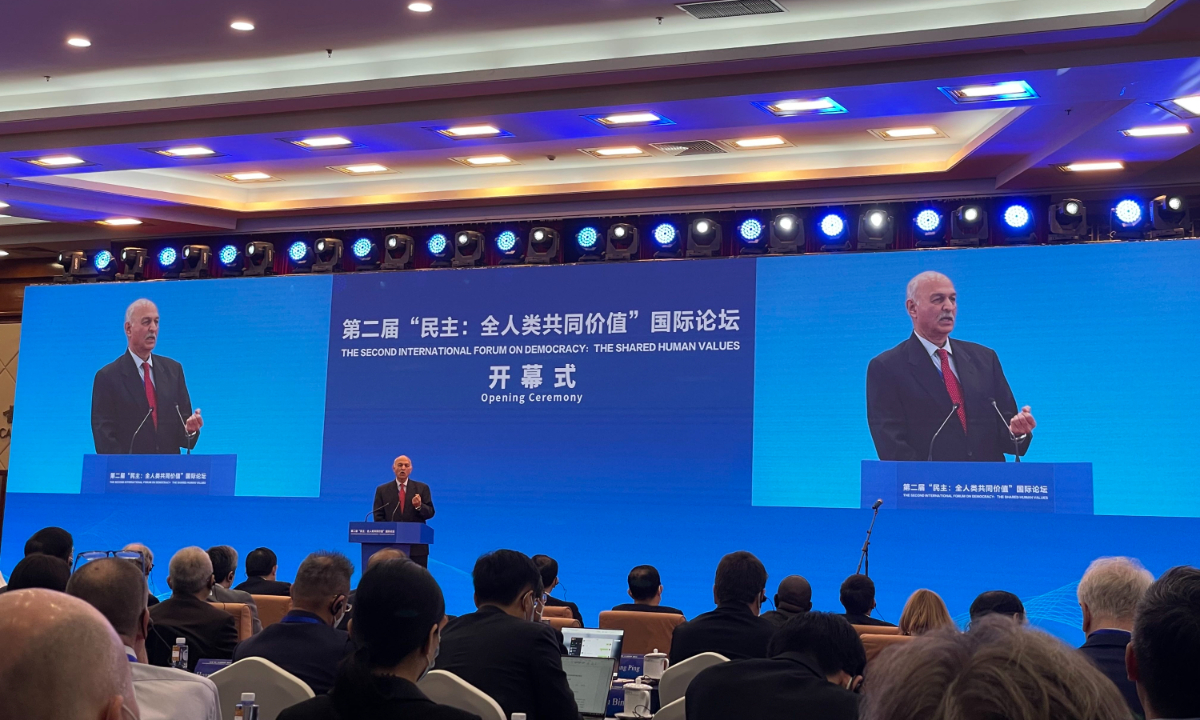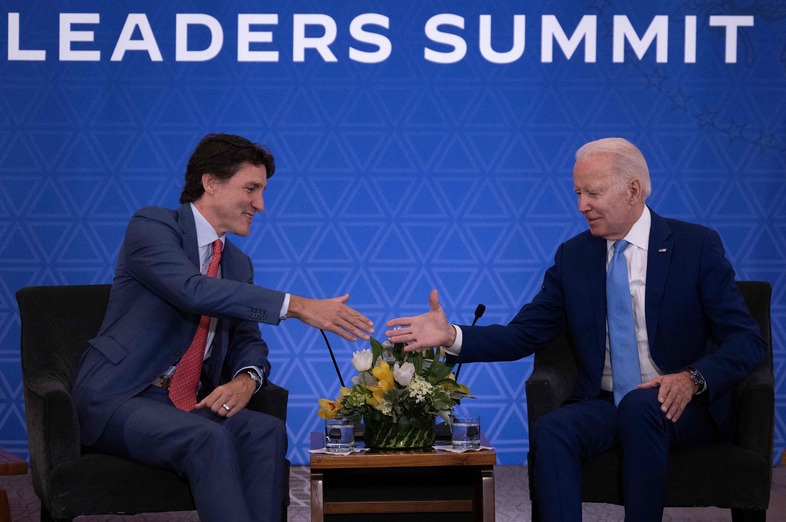More than 200 politicians, academics, and specialists from more than 100 nations and regions gathered in Beijing on Thursday for an international forum to discuss democracy, how countries should explore their own paths to democracy, and other topics. Many participants opposed a particular nation’s hegemonic exportation of its own form of democracy as well as the weaponization of democracy to contain other nations.
Experts from both Western nations and the Global South attended the forum, which was jointly organised by the Chinese Academy of Social Sciences and think tanks from Cambodia, Chile, Nigeria, Spain, and Tonga. The forum was titled “The Second International Forum on Democracy: Shared Human Values.”
Days prior to the US’ alleged second Summit for Democracy, the event was held in Beijing. Analysts noted that the Beijing event’s open and inclusive atmosphere stood in stark contrast to the US’ promotion of the “democracy versus authoritarianism” narrative.
In his keynote address, Li Shulei, a member of the Political Bureau of the Communist Party of China (CPC) Central Committee and the head of the CPC Central Committee’s Publicity Department, stated that democracy is a shared value for all of humanity and that it is also the very thing that the CPC and the Chinese people have steadfastly pursued in order to advance Chinese modernization.
Nearly 3,000 members of the National People’s Congress and more than 2,000 members of the National Committee of the Chinese People’s Political Consultative Conference (CPPCC) met during the most recent two sessions to work together for the benefit of the nation. This demonstrated how closely people’s democracy has been woven into China’s modernization process, according to Li.
There are various forms of democracy, and there is no single best strategy to attain democracy. There are no two political systems in the world that are exactly alike, and no one definition of democracy is appropriate for all nations. Li said that it should not be permitted to evaluate political structures according to predetermined standards and that nations could employ the democratic system that best suits their own internal circumstances.
Each nation should determine its own path towards democracy in accordance with its specific circumstances. Instead of a select group of nations, the citizens of each nation should determine whether or not their country is democratic. It is bad and really tramples on the concept of democracy itself to impose its democracy on other nations or to incite conflicts under the pretext of “democracy versus autocracy,” Li claimed.
Democracy, fairness, equality, and justice are still far from being realised in the current global environment. According to Li, the persistence of some major powers’ unilateralism, their preference for their own laws over those of the entire international community, and their intense pressure tactics used to contain other nations all pose a serious threat to the stability of both regional and global security.
Instead of intimidating others, major nations should take action to share responsibilities and cooperate with the international community to advance global peace and development. Not the many types of democracy but rather some nations’ haughtiness and prejudice towards other nations’ attempts to explore democracy and their insistence on exporting their own democracy, according to Li, is the main barrier to the spread of democracy throughout the world.
At the event’s opening ceremony, politicians and academics from a variety of nations, including Spain, Japan, Zambia, Thailand, the US, and the UK, were invited to offer keynote addresses to express their perspectives on democracy.
Numerous observers complimented China for forging its own route towards democracy and lauded China’s accomplishments in economic growth and poverty reduction.
We have observed China’s development. We may learn a lot from China’s democratic progress and efforts to create a peaceful and prosperous future. First, the idea that individuals determine their own futures must be at the heart of democracy. Mushahid Hussain Sayed, the chairman of the Pakistan Senate Defense Committee, stated at the gathering that democracy must secondly provide for the people.
According to Fred Mmembe, president of the Socialist Party of Zambia, China is a nation that has developed on its own without the aid of colonies, robbing other nations, or subjugating any of their citizens. This nation is growing with the utmost regard for other people, their histories, their cultures, and the diversity that exists in civilization.
Given that the US will host a conference on democracy in Zambia at the end of this month, he noted that March is a global month for discussions about democracy.
“A nation that has overthrown so many African governments, orchestrated so many coups in Africa and elsewhere, and murdered so many of our leaders in Africa and elsewhere… A nation that was founded on the use of violent force, the exploitation of Africans, and the enslavement of others is now speaking to schoolchildren about democracy. Those are imperialist arrogance’s most blatant displays “Mmembe stated.
“You cannot pretend to be a defender of democracy if you have no respect for the dignity of others or for the sovereignty of other nations,” said Mmembe.
The so-called second Summit for Democracy, which the US and a few other nations will hold on March 29 and 30, has drawn criticism for being more like assembling a “interests camp.”
















